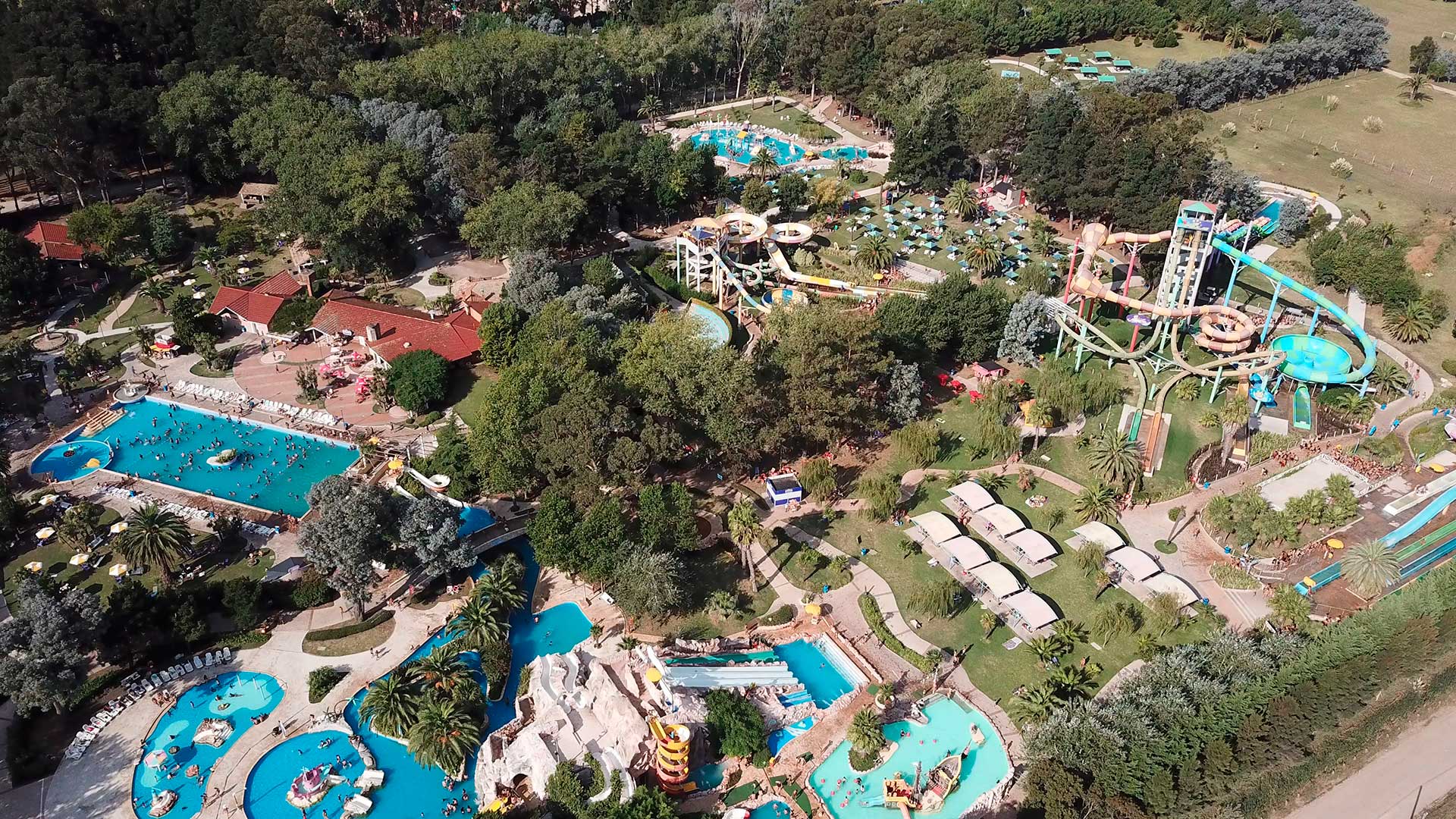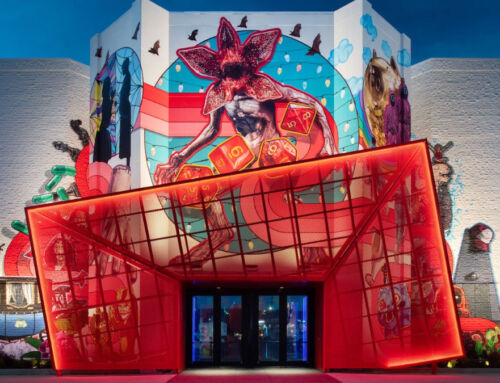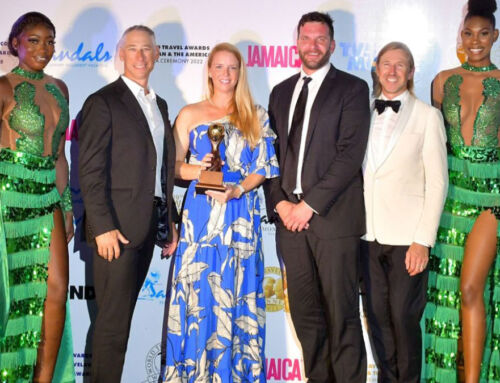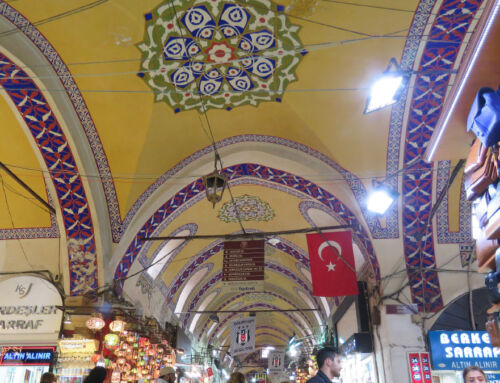The professional we interviewed on this occasion, manager of two parks in Mar del Plata, Argentina, has a family tradition in the profession. She is also a member of the Education Subcommittee of the International Association of Amusement Parks and Attractions (IAAPA), and is an expert in ontological coaching and the application of neuroscience to leadership.
Amusement Logic: You owe your professional training to IAAPA and IAE Business School: What have these two organisations given you?
Valeria Canon: Let’s start with the IAAPA certification: it seems fundamental to me and a great complementary training tool. In Argentina – and I know that in other Latin American countries as well – there is no university degree dedicated and oriented to leisure, so this Association partially fulfils that role. It is ideal training, because you listen and learn with the best in the industry. It takes time, like everything else, but the programmes offered give you a great overview, with all the details and in all areas: safety, marketing, sales, HR, operations, maintenance, hospitality, and not only in a theoretical way, but – and this is the most important thing – also in a practical way, with examples applied in each park. In addition there’s a great intangible value of networking with colleagues, regionally and globally. In fact, with the Covid crisis, this was a great value of the association: working groups were formed by type of park to define protocols that later served as guidelines for each park in their country.
IAE Business School is a business school in Argentina, where they have developed programmes that are part of IAAPA, complementary to their other certification programmes, mainly oriented towards safety.
A.L.: You are currently a member of the IAAPA Latin America Education Subcommittee. What is the work of this subcommittee and how did you come to be part of it?
V.C.: Yes, I have been a member of the education sub-committee for almost 4 years. I got the offer to be part of it and I accepted. It is a volunteer position that you can apply for, as every 3 years there is a rotation to make room for all those who want to participate. In this case, my participation was extended because of the pandemic, but my position will last until November 2021. I will probably still be involved in another committee.
What we do is develop all the educational programmes that IAAPA offers in Latin America. We discuss the topics of interest to the industry, find speakers, develop the schedule for the year, and so on. We have already developed the 2022 schedule. Last year, because of the pandemic, we had to modify a lot of what we had planned, so we concentrated on developing protocols, we developed communication issues, we focused on techniques for post-covid revenue return, we dealt with reopenings and all those issues that kept us very busy. This year we are also developing a visitor-experience manual, which will be available to all IAAPA members from November 2021.
A.L.: Two concepts from your background have caught our attention: the “ontological coach” and “neuroscience for leaders”. What are they?
V.C.: That’s right, I am a professional ontological coach. This is a profession that has been gaining ground for a few years now. In my case, I studied this profession to have another tool in my work. It has been really useful, not only in my role within the organisation, but also in my life. I became so enthusiastic that I am now a trainer of coaches at Kairos Consulting. Ontological coaching works in three domains: the body, the emotions and the words. It is precisely through words, through questions, that we try to move from a current situation to a desired one. There are different types of coaching: life coaching, executive coaching, organisational coaching, sports coaching… Depending on the subject we are working with, we develop the specific process.
I then specialised in neuroscience applied to leadership. Today, neurosciences provide us with a lot of information that allows us to better develop profiles. So, the way you work and the way you communicate will determine the way you treat or manage yourself, which will affect your efficiency and how you relate to others. For me, neuroscience is another tool that helps me to sharpen my senses and to try to improve my communication with my collaborators and within the organisation I belong to. Neuroscience is a whole world that provides more and more tools for those of us who lead teams. I have tried to be brief, because it is a very extensive subject.
A.L.: You have been the Manager of Aquopolis Water Park and Aeropolis Aerial Park for almost 25 years: How did you come to this position?
V.C.: I have been the manager of Aquopolis since it was born, 12 years ago. In fact, I have been with the family business of which I am a part for 25 years, which has other activities in addition to parks. I came to the position because of my training and my role within the organisation. Aeropolis is a new park, in which I assumed the same responsibilities that I have in Aquopolis.
A.L.: What are the main characteristics of Aquopolis? The concept of an “aerial park” is not very common in the industry, what does it consist of?
V.C.: One of the characteristics of Aquopolis as a water park is the innovation in games and processes. We are constantly working to improve and create great experiences. Another of the characteristics of our parks are the gardens and green spaces that the visitor enjoys in every part of the facility. There are many well-considered corners, many green spaces, many flowers, many plants and many trees to enjoy that great shade so necessary in the summer. In short, we are a great outdoor option, which was greatly enhanced by the pandemic. It is a value that we are very clear about. Another feature that distinguishes us, and that our visitors recognise, is the general cleanliness of the whole park. For us, this is a great value that requires a lot of daily effort.
In terms of concept, the aerial park is a park set in a 40-year-old pine grove. We have more than 40 bridges, 4 zip-line circuits, free-fall climbing wall, etc. It is a new park that we opened in December 2020, unique in the city, all outdoors and with the highest safety standards – all the equipment is French and Swiss – and we are very excited because it is working very well.
A.L.: What type of public are these parks aimed at?
V.C.: Our visitors are mainly families, although we also have a large influx of youth groups and schools, not only from our city but from all over the area. Our park is located in the city of Mar del Plata, which is the number one tourist city in Argentina. The peak season, in summer, goes from December to February. November and December is the season for groups and schools.
A.L.: What is the relationship between the parks and the hotels and resorts in the area?
V.C.: There are vendors at hotels in different parts of the city, whose customers are offered transport and a discount on their ticket.
A.L.: How do the parks you manage operate in terms of safety, maintenance and management?
V.C.: Safety is the number one priority for us, and everything is developed and managed with it in mind. From planning to operation, safety work is a hard daily job that is divided into stages taking into account the opening of the park. We also develop a preventive maintenance plan that involves all areas and is divided into several stages. We work all year round so that, when we open, everything is in optimal safety conditions, both for our employees and for visitors.
A.L.: What role do you see for innovation and renovation of attractions/services? What is your investment policy or what improvements do you plan to make?
V.C.: As I said before, innovation and renewal is one of our characteristics. For us, innovation is part of the annual planning. When we talk about innovation we are not only referring to investment in attractions, but we review all the processes to seek and improve the experience of our visitors. Since we live in Argentina, where entrance fees are charged in pesos and investments are made in dollars, it is quite complicated to calculate the return on investment, but in spite of this we continue. Our country has gone through several economic crises, which added to the pandemic makes everything very complex.
But we are a consolidated company that looks ahead. We are taking it step by step, perhaps we would like to go a little faster, but, well, these are complex variables; what is clear to us is that we are moving forward. We are thinking of importing a new tower with 4 new attractions, a type of attraction that the park does not have at the moment, so we are in the middle of the planning and evaluation process.
A.L.: What is the marketing and advertising strategy?
V.C.: Our marketing and advertising strategy is developed in conjunction with a creative and technical agency we work with. We develop an annual schedule with different communications and different products, depending on the time of year and the target audience. Accordingly, we choose the specific media and channels.
A.L.: How do you see the future of the parks sector?
V.C.: It is a growing industry, and let’s take a break from the pandemic that affected the whole world. Park experiences involve many emotions and sensations that generate many unforgettable memories with family or friends. Undoubtedly, it is an industry that has a lot to contribute to the amusement and leisure of human beings, especially those parks that are outdoors. If we add emotions, technology and innovation, it is a sector that has a lot of projected growth. We will never stop feeling emotions or having fun, that is what characterises us as human beings, so the industry must keep up with the growth and requirements of the new generations.






